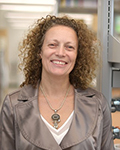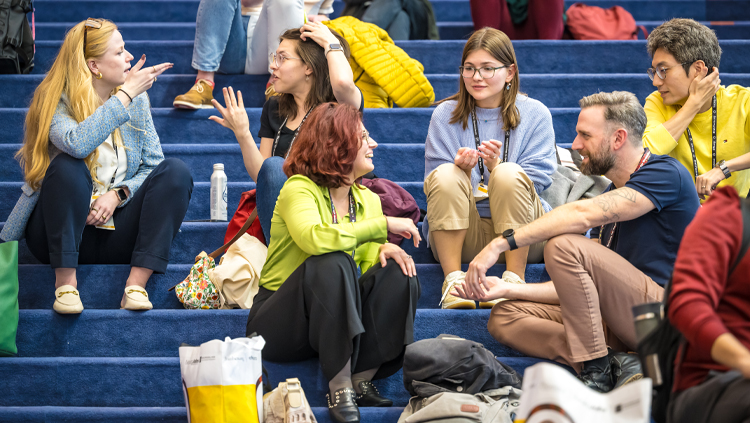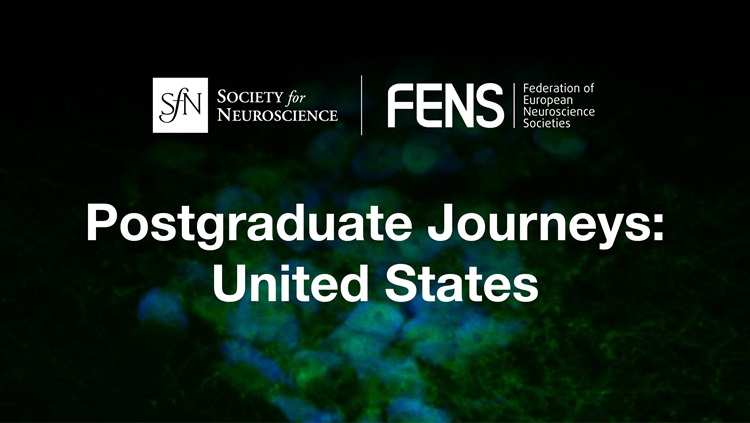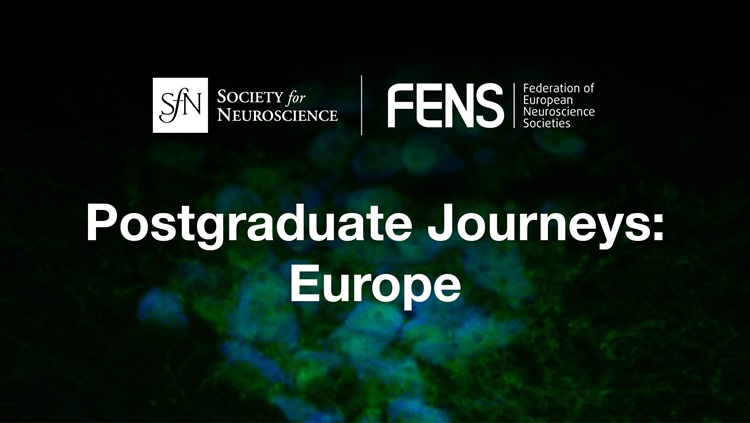Join SfN and FENS for a panel discussion exploring the similarities and differences between PhD and postdoctoral training in the United States and Europe. Lique Coolen, PhD, MBA, and Dirk Schubert, PhD, will introduce and moderate a panel of trainees who will share their postgraduate journeys and answer audience questions. Don’t miss this opportunity to gain invaluable insights into your academic path!
Speakers
Lique Coolen, PhD, MBA
Lique Coolen, PhD, MBA, is the vice president of research and professor in biology and psychology at New Mexico Institute of Mining and Technology. Coolen has served in numerous leadership roles and previously served as assistant for special projects to the provost and senior vice president at Kent State University in the Division of Academic Affairs and assistant director at the Brain Health Research Institute at Kent State University. She also previously held faculty positions at the University of Cincinnati, University of Western Ontario, University of Michigan, and University of Mississippi Medical Center, and Kent State University. She has received numerous awards for her research and teaching on spinal cord injury, neuroendocrine function, and drug addiction. Coolen currently serves as chair of the Neuroscience Training Committee for the Society of Neuroscience.
Matthew P. Getz, PhD
Matthew P. Getz, PhD is a postdoc at the Technical University of Munich (Technische Universität München) with Julijana Gjorgjieva. Previously, Getz did his graduate work with Brent Doiron at the University of Pittsburgh and University of Chicago. His current research is focused on linking neural network activity and plasticity to behavior, with the goal of better understanding how changes in neural network structure and dynamics affect an organism's actions.
Richard Gao, PhD
Richard Gao, PhD, is an assistant professor at Goethe University Frankfurt. Gao earned his undergraduate degree in engineering science and biomedical engineering at the University of Toronto and his PhD in cognitive science at UC San Diego. He recently completed his postdoc in Tübingen, Germany, working on ML/AI tools for neuroscience. In addition to his academic research, Gao has experience in neurotech and AI startups. His area of focus is using AI for neuroscience, machine learning, computational modeling, signal processing and data analysis.
Katerina Kalemaki, PhD, MS
Katerina Kalemaki, PhD, MS, is a postdoctoral researcher in the department of neurology at Brigham and Women’s Hospital, Harvard Medical School, collaborating with Boston Children’s Hospital. Kalemaki holds a PhD in neuroscience and a MS in biomedical and molecular biology with expertise in neurodegeneration and aging. Her current research focuses on understanding how aging and neurodegeneration alter cortical circuit function and plasticity. She integrates spatial transcriptomics, single-cell RNA sequencing, and advanced imaging techniques to map neuron–glia interactions and identify molecular pathways driving Alzheimer’s disease progression.
Daniel Medina-Cano, PhD
Daniel Medina-Cano, PhD, is a postdoctoral research associate at Memorial Sloan Kettering Cancer Center in the Developmental Biology Program. He earned his PhD at the Imagine Institute in Paris. He has developed new in vitro tools to interrogate the basic mechanisms of brain development and improved the culture of mouse stem cells and used this improved methodology to generate robust mouse brain organoid protocols. He is now applying these systems to understand how genetic variation and molecular pathways control the early stages of brain development, with emphasis on the mechanisms underlying cell fate decisions.
Dirk Schubert, PhD
Dirk Schubert, PhD, is an associate professor of translational neuroscience in the Donders Institute for Brain, Cognition, and Behaviour and leads the research group “Cellular Neurophysiology” in the Cognitive Neuroscience Department at Radboud University Nijmegen Medical Centre in The Netherlands. He earned his PhD in biology at the Heinrich Heine University of Düsseldorf, Germany with an expertise in electrophysiology and cellular neuroanatomy. His research focuses on understanding neuronal network formation and maturation in health and neurodevelopmental disorders such as epilepsy, schizophrenia and autism spectrum disorder, particularly on the neuronal circuitries maintaining excitatory/inhibitory balance in rodent ex vivo models and human IPSC derived neuronal networks. Schubert currently serves as chair of the Federation of European Neuroscience Societies (FENS) committee for Higher Education & Training (CHET).
Lisa Traunmüller, PhD
Lisa Traunmüller, PhD, is a postdoctoral research fellow at Harvard Medical School. She did her undergraduate training in molecular biology at the University of Vienna and then obtained her PhD in neuroscience from the University of Basel. Her work centers on understanding the genomic, molecular and cellular mechanisms that underly memory formation and synaptic plasticity, with a specific focus on the role of neuropeptidergic signaling in this process.
Emily S. Wilson, PhD
Emily S. Wilson, PhD, is a postdoctoral research fellow at Instituto de Neurociencias Alicante CSIC-UMH. She earned her PhD in anatomy and cell biology at the Brody School of Medicine at East Carolina University. Wilson’s research focus is investigating the mechanisms that drive thalamocortical network development. She is currently exploring network connectivity between astrocytes and neurons rising from varying regions within the somatosensory pathway to determine the impact of region specificity on developing networks, redirecting astrocytes into neurons in vivo and in vitro and determining their connectivity in thalamocortical pathway, and investigating the onset and development of spontaneous activity in emerging thalamocortical networks using human-derived 3D models of development.
Who can attend this webinar? This webinar will be complimentary.
Will this webinar be available on demand? No, this webinar will not be available on demand after the live broadcast.
Will a certificate of attendance be offered for this event? No, SfN does not provide certificates of attendance for webinars.
How do I access the conference on the live day? After registering, you will receive a confirmation email with the event link and the option to download calendar reminders.
What are the technology requirements for attending? This webinar will be hosted on Zoom Webinar. Instructions for joining and participating in a webinar can be found here.
Can I ask the presenters questions? Yes! You can submit any questions before the webinar through the registration form. During the webinar, you can submit questions through the Q&A box.
I have other questions not answered here. Email neuronline@sfn.org with any other questions.
Review SfN’s Code of Conduct, rules for virtual events in the Digital Learning Community Guidelines, and communications policies regarding dissemination of unpublished scientific data, listed below. SfN asks that conference attendees respect the sensitivity of information and data being presented that are not yet available to the public by following these guidelines:
- Do not capture or publicly share details of any unpublished data presented.
- If you are unsure whether data is unpublished, check with the presenter.
- Respect presenters' wishes if they indicate that the information presented is not to be shared.
















